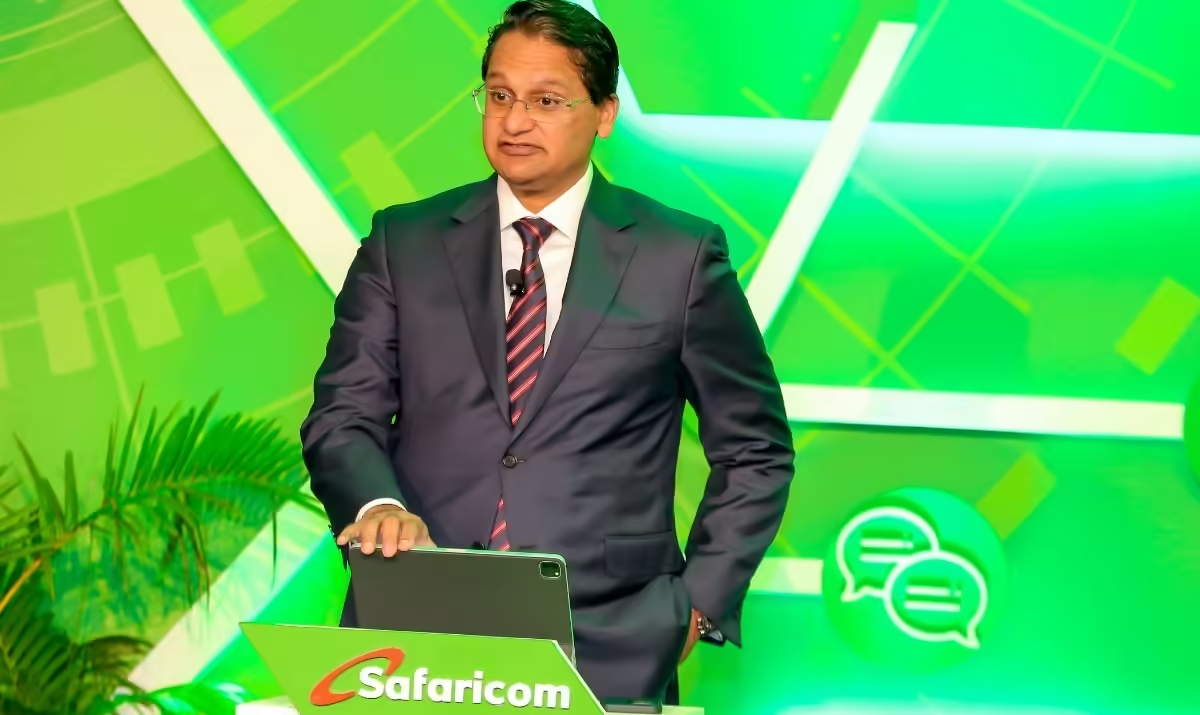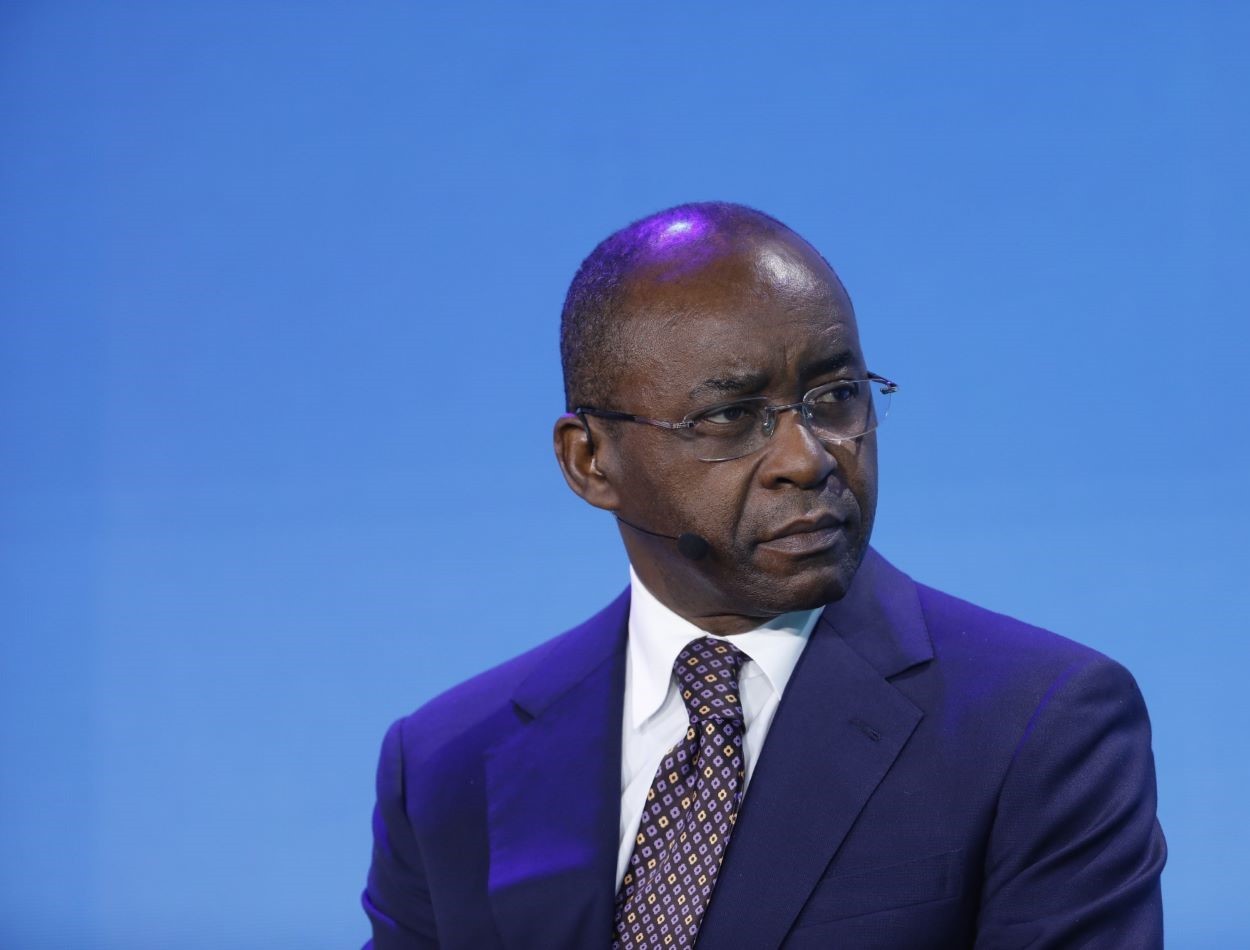For years, Safaricom has dominated Kenya’s telco industry and financial sector, much because of its solid corporate governance and innovation. Safaricom, the biggest telco in East and Central Africa, and the most profitable public company, has in the past weeks dominated the news cycle because of a controversial $800 million government contract to digitise health systems.
While the company has defended its role in the contract, claiming that everything was above board, critics have pointed out the growing alliance between the government and the firm. At the centre of what people have termed an “unholy” alliance is the telco’s board chair, Adil Khawaja.
Khawaja was appointed the chair of the board just 100 days after President William Ruto took power. In a story in a local daily this week, Khawaja agreed that he is Ruto’s “Mr Fix It”, raising serious ethical questions about his involvement with state contracts. Besides Safaricom, Khawaja is a director in many other companies and is the managing partner at Dentons HHM, a leading commercial law firm in Nairobi.
Khawaja’s law firm is the legal representative of one of the parties in the $800 million contract that Safaricom won, and they have also represented Adani Group in several other controversial contracts awarded in recent days.
Safaricom storm
Safaricom, Kenya’s most profitable public company, has spent much of this week promoting the Integrated Healthcare Technology System (IHTS) that it won in a consortium. The Safaricom-led consortium includes Konvergenz Network Solutions and Apeiro Limited, a firm linked to Indian businessman Gautam Adani through an Abu Dhabi-based Holdco.
Although Khawaja asserts that the project was initiated prior to his appointment as Safaricom’s board chair, critics and opposition politicians have raised concerns about a potential conflict of interest, citing his law firm’s representation of Konvergenz and his close ties to President William Ruto.
“We gave some preliminary advice to Konvergenz. They are a big technology firm that has done many successful large projects. This project was started by former President Uhuru Kenyatta and it is only now that we are seeing its implementation,” Khawaja told Daily Nation, a local daily.
Safaricom, holding a 22.56% stake in the consortium, will provide network support for the project, while Apeiro Limited (59.55%) and Konvergenz (17.89%) will handle platform development. The system is designed to connect all health facilities across the country and store medical data.
Dentons HHM also represents the Adani Group in a high court case challenging the Indian conglomerate’s bid for major projects, including the 30-year Jomo Kenyatta International Airport (JKIA) concession and the construction of high-voltage transmission lines.
Khawaja noted that his law firm has over a decade of experience in public-private partnerships (PPPs), an approach the Kenyan government has turned to as rising public debt has reduced spending on healthcare, roads, power lines, railways, and airports.
Who is Adil Khawaja?
Adil Khawaja is a prominent Kenyan lawyer known for his expertise in commercial law, real estate, and public-private partnerships (PPPs). He is the managing partner of Dentons Hamilton Harrison & Mathews (Dentons HHM), a leading law firm in Kenya. Over the years, Khawaja has built a reputation for advising on high-profile cases and projects, particularly in sectors such as infrastructure, finance, and energy.
His legal career spans over two decades, and he is widely recognized for his knowledge of public-private partnerships, a model the Kenyan government has increasingly relied on due to rising public debt and reduced government spending on large-scale projects like healthcare, transport, and energy.
Despite his accomplishments, Khawaja has faced scrutiny, particularly regarding potential conflicts of interest. His law firm’s representation of major corporate players, including the Adani Group and Konvergenz, and his close relationship with influential figures like Kenyan President William Ruto, has drawn criticism from opposition politicians and other stakeholders.
Khawaja, a University of Sheffield alumnus is involved in several board positions, including Rhino Ark Charitable Trust, CMC Motors Group Limited, and Atua Enkop Africa Limited. He has a significant track record in corporate leadership, having served as a director at KCB Group for eight years, including a four-year tenure as chairman. Additionally, he was a member of the board of Kenya Power until his departure in July 2020, which was part of a broader restructuring at the utility company.
Questions have been asked whether his role in state firms was a result of his business acumen or political patronage. Most of the state companies he’s been part of have been linked to controversial government deals marred in corruption. The involvement of his law firm and companies linked to him and his family have led to conflict of interest speculations.
Never wanted to be a lawyer
Adil Khawaja never planned to be a lawyer. After college, he started his own business. Now, over 30 years later, he’s the go-to guy for legal matters and runs Dentons Hamilton Harrison & Mathews, one of Kenya’s biggest law firms. Adil’s a real trailblazer—always leading the charge and never asking others to do something he wouldn’t do himself.
In his 30-year career, Adil has seen a lot of success. He says he’s achieved all his childhood dreams. Some of his biggest accomplishments include building a solid reputation, forming strong relationships with clients and partners, and keeping top talent on board. Besides being the Managing Partner, Adil sits on many boards as a director or chairman.
How he ended up at Hamilton Harrison & Mathews—now Dentons Hamilton Harrison & Mathews—is a funny story. In law school, Adil didn’t think much about where he’d work after graduation. He only looked at firms with European-sounding names and applied to five of them. Four out of five responded, inviting him for interviews and offering him jobs.
“But I don’t know why I was drawn to Hamilton Harrison & Mathews,” Adil says. “Maybe it was the interview. It was more casual and friendly. And the interview wasn’t in a meeting room, but in one of the partner’s offices—there were only two partners back then.” He became interested in working there during the interview itself.
He wanted to be a commercial lawyer, but they offered him a litigation position, which he accepted. He stayed in litigation for 14 years before switching. “That’s how I ended up here,” Adil says. About nine years ago, he decided to run for Managing Partner. At the time, there were a lot of older partners and not many young ones. That’s how he became the boss.






